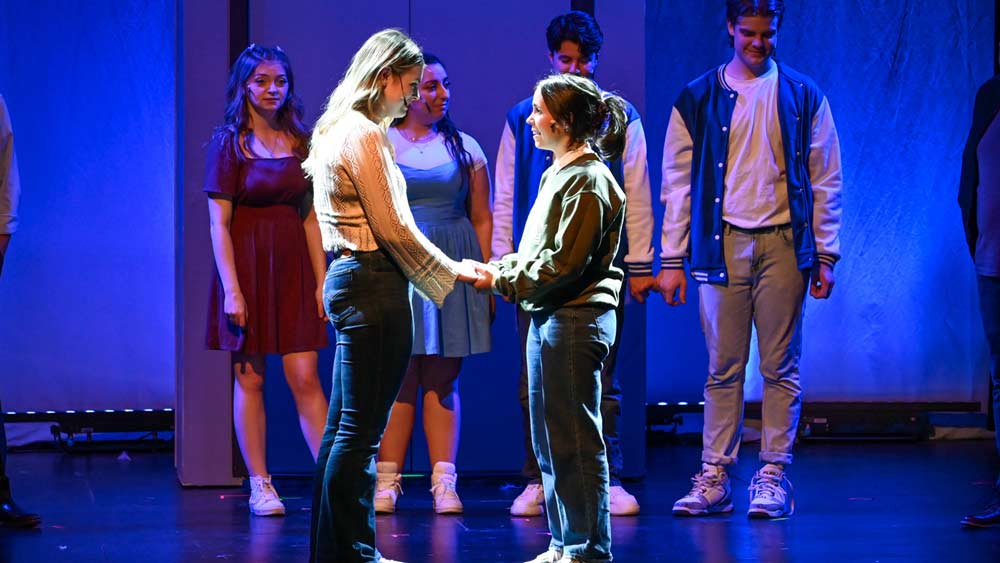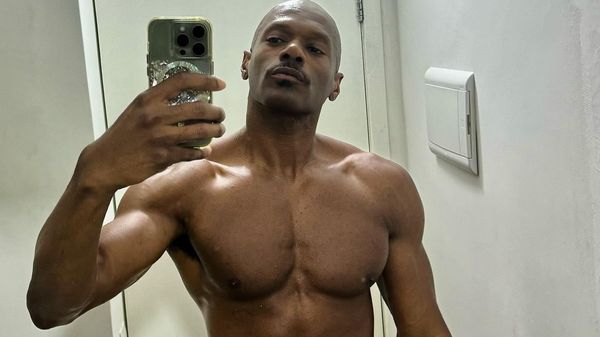July 28, 2011
A Gay Gumshoe in the Windy City :: Marshall Thornton on His Hardboiled '80s Mysteries
Kilian Melloy READ TIME: 9 MIN.
Marshall Thornton's writing is good in a major way. His prose is polished, but his stories are anything but stuffy. In "Boystown" and "Boystown 2," each volume collecting three mystery stories featuring a gay gumshoe named Nick Nowak, Thornton entertained readers with tales of murder, arson, suicide, more murder, mayhem... and hot sex.
And while the stories are uniformly well crafted, the series just gets better because each story builds on what's come before. Nick Nowak isn't just your run-of-the-mill ex-cop turned hardboiled private eye; as it turns out, he's got brains and balls and a heart, and the books let us see into the nooks and recesses of all these aspects to the character.
When he's not putting together the intricately worked pieces of Thornton's puzzlers, Nowak is sleeping with clients, suspects, and witnesses. He can't help it; they like him, and he likes them back. It's the Chicago in the early 1980s, and now that Nick has been outed thanks to a nasty bashing that cost him his career and his boyfriend, he might as well go with the flow, right?
The boyfriend, Daniel, didn't die. But he did get his face busted pretty badly, and when he wanted to involve the police -- a move that was going to ruin Nowak's career and invite endless harassment from Chicago's finest, many of whom are his own extended family -- Nowak tried to stop him. Now, three years later, he's off the force and living with the harassment and anti-gay enmity he feared, but he's doing it without Daniel, whom he still loves.
There are consolations, though -- either the ones that come his way because of the cases he takes on (as a gay private eye, he's the gumshoe of choice for certain kinds of clients with certain kinds of problems), or the ones, like his friend and fuck-buddy Ross, who make up what few remaining close ties he has.
"Trouble, in the form of boys who look like Freddie, always seems to find me," a line from one story reads; they are all written in the first person, from Nowak's point of view, and the '40s-style tenor is no accident. It's what makes the series, putting an extra layer of both grime and glamour on a period that's now three decades gone.
The pre-AIDS haze of casual sex evoked by the books is destined to come to an end, as the reader knows, and Thornton -- knowing that we know it -- integrates the start of the AIDS crisis into his stories as smoothly as the hot scenes of sex between Nowak and his hookups.
The newest installment in the series, the just-published "Boystown 3: Two Nick Nowak Novellas," poses the most mysterious cases yet, but also examines, with great delicacy and surprising, precise emotional authenticity, the changes in Nick's personal life, and his persona. This is compelling stuff on two levels, both as detective stories and as dramatic literature.
EDGE couldn't put the books down. Then EDGE couldn't wait to talk to Marshall Thornton. Happily, the writer agreed to an interview.
EDGE: Tell me, what sparked your interest in writing stories about a hardboiled gay gumshoe?
Marshall Thornton: I have an MFA in screenwriting from UCLA and spent about a decade writing spec scripts. The thing about screenplays is that they're never actually finished until they're a movie. I came close a couple times but nothing panned out. So, in 2008 I was desperate to actually write something I could finish. On the Internet, I came across a call for gay Christmas erotica, which at the time seemed so unusual to me that I had to give it a try. I wrote up a story and it got accepted.
In the spring of 2009, I was fishing around for ideas to write more short stories and that's when I got the idea for the first Nick Nowak story. I'd always been a fan of mysteries, especially Joseph Hansen and Sue Grafton, and -- though I was a bit nervous about a detective series -- it seemed like a good time to give it a try. Originally, I'd planned to have the stories come out separately, but when I submitted the first story my publisher suggested grouping them so I quickly wrote two more and the first book came out in November of 2009.
EDGE: It's an interesting choice you've made, setting your stories in the 1980s.
Marshall Thornton: Choosing the '80s was probably a selfish decision more than anything. I lived in Chicago during that period and remember the city fondly. It seemed like it would be easy -- though there's much more research involved than I expected.
One of the things I really enjoy about writing mysteries is that they allow you to explore subject matter that doesn't always hold up in traditional drama. For instance, just writing fiction about how gays were treated and thought of in the early eighties could get either melodramatic or tedious without the addition of a mystery. Writing a mystery provides a structure for touching on all sorts of topics that can easily wilt in general fiction.
The other element that's interesting -- and certainly I didn't realize this when I began -- is that mysteries are always a quest for justice. You can say the same for any civil rights movement. So, it's a neat fit to set the series thirty years ago before we'd come as far as we have.
EDGE: It's enjoyable to see how the stories build on one another. Do you map out several stories at once? Or do you find you have to keep track of each detail because you're not sure what the next step is going to be?
Marshall Thornton: I haven't been very good at mapping out the stories to date. I'm trying to get better. In the first book, I wrote the third story second and the second story third and then realized they'd be better flipped. By the second book I was paying more attention to an overall arc. I'm just finishing my draft of the fourth book (which is a full-length novel) and I know a lot about what the fifth book will be, so I'm getting better at mapping things out.
EDGE: The first two books each included three long short stories. The new book has two novellas, and book four, you just mentioned, is going to be a novel. How did the gradual change in format happen? Was it an organic process, as you kept building and populating the world Nick lives in, and understanding the complexities of his life and character, that you were starting to need bigger canvases to play with?
Marshall Thornton: On the one hand it was a "business" decision since I think readers are more inclined to read novels than short stories -- I certainly am. As I was writing the first three books I kept thinking it would be "wiser" to write a full-length novel. On the other hand, one of the things I've learned is that "business" decisions don't work for me if they're strictly business.
I do think you're right about it happening organically. When I sat down to outline the fourth book, there were just a lot of scenes that came to mind even before I began to think about the mystery. So, I think even if it were an unwise "business" decision I'd be moving to the longer format... though, I might at some point go back to short stories. It will really depend on what direction Nick's life takes.
EDGE: I kind of like the shorter format and the several stories in one book approach. I feel like I'm watching a TV show. No surprise, I guess, since you are also a screenwriter - which brings me to ask: Any hopes of writing a screenplay for your gay gumshoe?
Marshall Thornton: I'm a huge fan of series TV, and that comparison occurred to me a lot while writing the first two books. Those shorter stories do have a similar structure to a television series. Of course, I'd love to see the books turned into a TV series, but I don't have any plans to shop it around, or write a spec. One of the great pleasures of writing fiction is not having to take meetings.
EDGE: There's no way to set a story with a gay character in the early 1980s and not address the AIDS crisis. Is that a tough task for you, balancing the cruelties of that time with the need to tell stories that will entertain, and acknowledge the personal costs of the epidemic while also keeping the focus on the mysteries Nick Nowak faces?
Marshall Thornton: It's tougher than I expected. However, that sort of challenge sometimes makes the writing easier or at least more interesting.
There's a lot of gay fiction that has to do with AIDS, However, most of it was written during the worst of the crisis. To my knowledge, there have only been a few books in the last few years that touch on it at all. I find it very interesting to have to keep in mind that my readers know how that story progresses.
Writing about it from this distance is a much different experience than writing in the midst of the storm. I can deal much more with the denial people were in and the false ideas people had about what was happening than writers who were on the front lines. Not that my life hasn't been touched by AIDS -- I'm just writing at a greater distance than most.
EDGE: What, for you, is the hardest part about writing a mystery story? Figuring out the plot? Deciding what kind of crime Nick will face next?
Marshall Thornton: The hardest part is probably keeping all the details straight. I have a real terror of anachronism. I'm always upset when other writers get it wrong (and thrilled when they get it right) so I'm trying very hard to keep the details and the feeling for the period accurate. At the same time, Chicago is a big enough city that everyone experiences it in a slightly different way. I like Sarah Paretsky's books, which cover the period I lived in Chicago -- but when I read the books Chicago feels like a very different city.
EDGE: Nick sure has a lot of sex. When it comes to writing the sex scenes, do you have rules you stick to, or is it pretty much no holds barred and you go where inspiration takes you?
Marshall Thornton: Ah yes, sex. My publisher is an m/m romance publisher, but I'm not really a romance writer -- nor did I truly understand that genre when I began. I thought it was romance or sex, so I wrote a lot of sex scenes. That isn't really what m/m is, but in the meantime I've become quite interested in Nick's sex life... as I hope my readers have. And, I think the sex fits with the hardboiled nature of a gumshoe. Anyway, I like what my misunderstanding has begun.
I do have rules about the scenes, though. In each book I try to give them an arc of their own. They really need to go somewhere. I don't like erotic books where every sex scene is what I'd call a peak experience, they become very static -- not to mention unbelievable. At the same time, I don't want to write scenes about bad sex. The series is dark enough -- that would just be depressing. I'm shooting to let the story continue beyond the bedroom door -- as our real life stories do.
EDGE: Writers are always asked how much of themselves they put into their characters, so let me ask it too... but with a twist: Why make Nick Nowak Polish American, in particular, rather than the more common Irish American, etc.? Are you of Polish extraction yourself - is this a shout out?
Marshall Thornton: My own ethnic background is largely British, so Irish would have made more sense. When I lived in Chicago I knew a number of people who were ethnically Polish, and so I think it felt more authentic. Because the series is set thirty years ago, I have an opportunity to write a little about the friction between European ethnicities. That seems to have really faded in this country, and these days anyone who's European-American is just white.
EDGE: Do you have any hints about book 4 and 5 (and beyond) you'd like to tease us with?
Marshall Thornton: In the fourth book, someone from Nick's past shows up and involves him in an unsolved murder from the nineteen-fifties. I won't start the fifth book for a few more months, but I'm planning something very shocking for the first page.
EDGE: What non-Nick Nowak projects might you have in mind?
Marshall Thornton: Believe it or not, I also like to write comedy. Last year, I published "The Perils of Praline, or the Amorous Adventures of a Southern Gentleman in Hollywood."
It's been a while since I wrote anything funny and I've been missing that. I have several comedic projects I'm considering, and haven't quite committed to one particular project.
"Boystown: Three Nick Nowak Mysteries," "Boystown 2: Three More Nick Nowak Mysteries," and "Boystown 3: Two Nick Nowak Novellas" are currently available from Torquere Press.
Kilian Melloy serves as EDGE Media Network's Associate Arts Editor and Staff Contributor. His professional memberships include the National Lesbian & Gay Journalists Association, the Boston Online Film Critics Association, The Gay and Lesbian Entertainment Critics Association, and the Boston Theater Critics Association's Elliot Norton Awards Committee.





